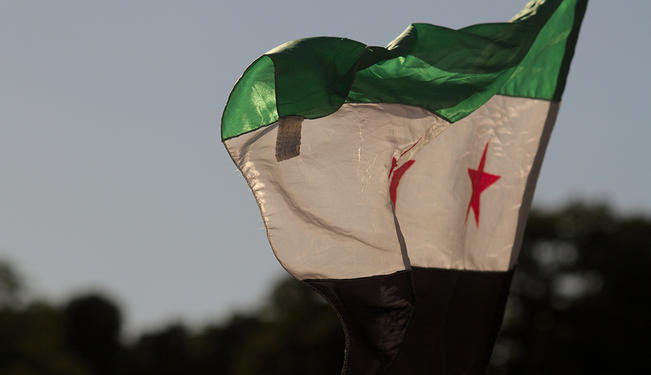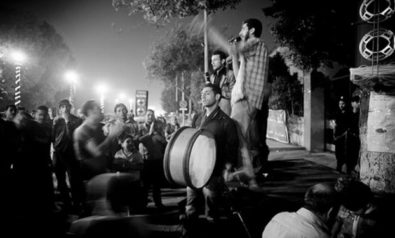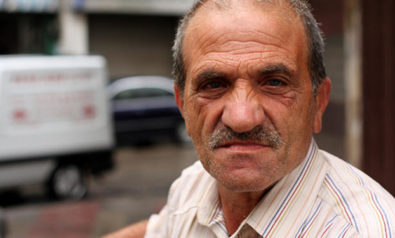This article is the last of a multi-part series exploring Tripoli, Lebanon. The series is based on Nicholas A. Heras’ extensive experiences in the city between 2006 and 2011, and the continuing lessons its residents have given him. View bonus feature here. Lebanon's Tripoli, the “first city in Syria,” is a spiritual front-line in the history-making conflict raging in Syria. The recent surge of fighting in the last week between the Free Syrian Army (FSA) and other armed opposition groups, and the Syrian military and its allied shabiha (ghosts) paramilitary forces has led many analysts of the Middle East region to declare the imminent death of the Bashar al-Assad government. Syrian armed opposition groups, a majority of which are Sunni Muslim, are widely believed to be inexorably moving towards a decisive blow to the Syrian Ba’ath Party’s rule and the prominence of its Alawite power-brokers. The end of al-Assad’s power in Syria is deeply, perhaps stridently, desired by many of Tripoli’s residents. Syria’s descent into drowning bloodshed, lulled by political oppression and the siren song of deeply-felt sectarian affiliation, is an echo of the Lebanese Civil War. In time, perhaps, the “Syrian Civil War,” as it is now known globally, will be regarded historically in the same light as Lebanon’s terrible conflict. Like Lebanon, Syria’s antiquated political system and the decision-making of its leaders combined with a foundering and inefficiently corrupted (some would call it mortally wounded) economy, has exacerbated underlying sectarian, ethnic, and tribal tensions into outright warfare. Civil War As occurred in Lebanon, the Syrian conflict started as an existential question of political and socio-economic legitimacy, and was torn new wounds by the desire to maintain existing sectarian predominance and the right to rule obstinately and inequitably, over all the other groups in the country. Syria’s scars, now being cut across its civil society and body politic, are a visage all too familiar to the Lebanese. Syrians, like their Lebanese kindred once were, are waging widespread war against each other that, if brought to excess, will be a generationally scarring event the Syrian watan (homeland) may never fully recover from. Tripoli, and its endemically polarized sectarian battles between Alawites and Sunnis, sadly, has become the oft-cited example of what could be in a future Syria. Talk is now rife in Middle Eastern analytical circles that the al-Assad government, seeing that its power is at an end, may “contract” to become the powerful militia of its Alawite constituency, who are predominant in the hinterlands of the northwestern Syrian Latakia Governorate. There, it is reasoned, the Alawites will seize the heaviest weapons and the might of what was once “their” government and military, and use them to stave off attacks from its opponent avenging army of liberation. Perhaps this assaulting force will be the FSA, or perhaps it will be other armed opposition groups; some Salafists are ready to create the next great Islamic Caliphate in what was once called Syria. The Alawites' would-be slayers, it is reckoned, would of course be mostly Sunni Muslims. The Sunnis, according to conventional wisdom, will come to settle the account of bloodshed and oppression that was done unto them and destroy the Alawites. Syria’s other minority groups, Christians, Druze, Kurds, Ismailis, Assyrians, tribes and families, must all choose a side before the reckoning, or certainly die in the maelstrom that is tumbling upon their country. City by city, village by village, neighborhood by neighborhood, Syria will be sectarian cleansed, with the victors standing triumphantly on the corpses of the vanquished. Morbid and melodramatic as this vision sounds, it is an omen of doom that is actively stated as fact on the streets of the warring neighborhoods of Jebel Mohsen and Bab al-Tabbaneh in Lebanon's Tripoli. Jebel Mohsen, the Lebanese Alawite stronghold, remains steadfast against a gathering Sunni storm building its fury in the neighborhoods below and around it. Stand fast, the mentality goes for both sectarian groups in these districts, or prepare to be torn down. Many of Syria’s civil warriors, on all sides, are now demonstrating this same sensibility. Sectarian ill-will is becoming an increasingly important motivation to fight in Syria. With time, social sectarianism could perhaps be the most important reason to shed blood in the country, more than to uphold the old order of the al-Assad government, or to contest the Ba'athist rule to address Syria’s entrenched political and economic grievances. Civil Hope In the face of so much sorrow, both near and afar, there is hope. Tripolians, like all the Lebanese, experience the violence of a neighbor’s war, and its bitter memory still lingers on in the collective consciousness of the Lebanese watan. Hope, for a better life and standard of living, for improved sectarian relations and an end to an impasse in the nation’s diverse political life, is ever-present in Tripoli. Tripolians, regardless of their sectarian affiliation, hold a common belief in the beauty of northern Lebanon and pride in being Trablusi (Tripolians), whose home is nicknamed the “Jewel of the East.” Against common belief, a pride in the diversity of the city, and by extension the Lebanese nation, is not uncommon in Tripoli. This strength in diversity is also at display during the holiday seasons. An example of this civic goodwill is Ramadan. Ramadan is a time of great celebration in Tripoli. It is also a time of many acts of kindness and solidarity between Tripoli’s residents. Christians and Alawite employees will often offer to cover the last few hours of their Muslim co-workers’ shifts, so that their Muslim colleagues can beat the pervasive and festive Ramadan traffic in the city to buy food and sweets to break their fasts at home with their families. Tripoli may be an infamous model of sectarian strife for Syria to follow, but it is also a reminder that, as desperate as the Syrian Civil War may become, hope is never extinguished. Tripolians, in the face of economic stagnation, social and political instability, and, at times, vicious sectarian conflict, are enduring through hope and mutually shared pride in their identity of being from Tripoli. Tripoli, a particular province of Syria, has many beautiful moments of sectarian cooperation, civic goodwill and pride. Hope, not sectarian hatred, is the harvest of Tripolians. View bonus feature from Nicholas A. Heras' multi-part series with pictures of Tripoli, Lebanon here. The views expressed in this article are the author's own and do not necessarily reflect Fair Observer’s editorial policy.
Support Fair Observer
We rely on your support for our independence, diversity and quality.
For more than 10 years, Fair Observer has been free, fair and independent. No billionaire owns us, no advertisers control us. We are a reader-supported nonprofit. Unlike many other publications, we keep our content free for readers regardless of where they live or whether they can afford to pay. We have no paywalls and no ads.
In the post-truth era of fake news, echo chambers and filter bubbles, we publish a plurality of perspectives from around the world. Anyone can publish with us, but everyone goes through a rigorous editorial process. So, you get fact-checked, well-reasoned content instead of noise.
We publish 2,500+ voices from 90+ countries. We also conduct education and training programs
on subjects ranging from digital media and journalism to writing and critical thinking. This
doesn’t come cheap. Servers, editors, trainers and web developers cost
money.
Please consider supporting us on a regular basis as a recurring donor or a
sustaining member.
Will you support FO’s journalism?
We rely on your support for our independence, diversity and quality.








Comment